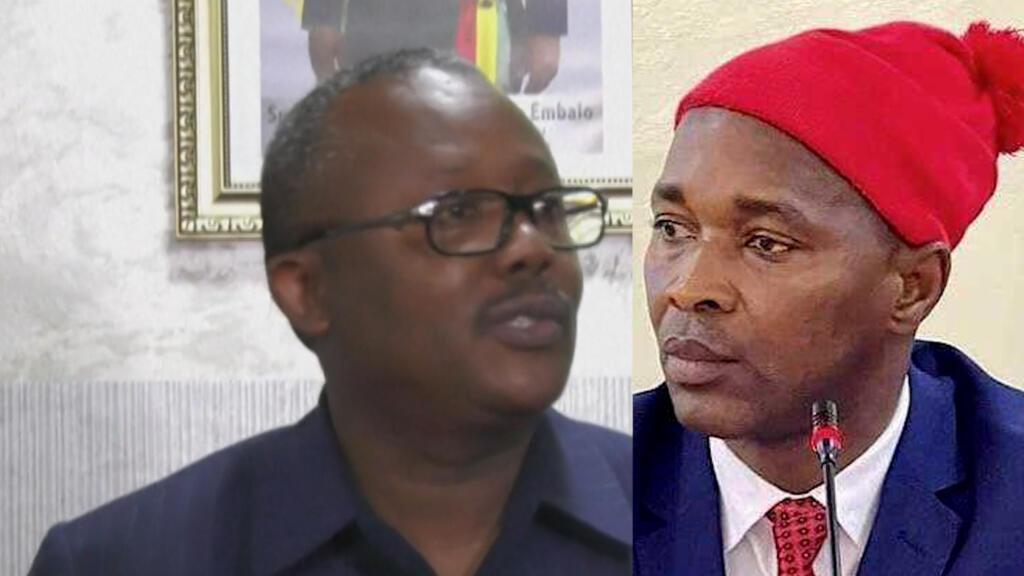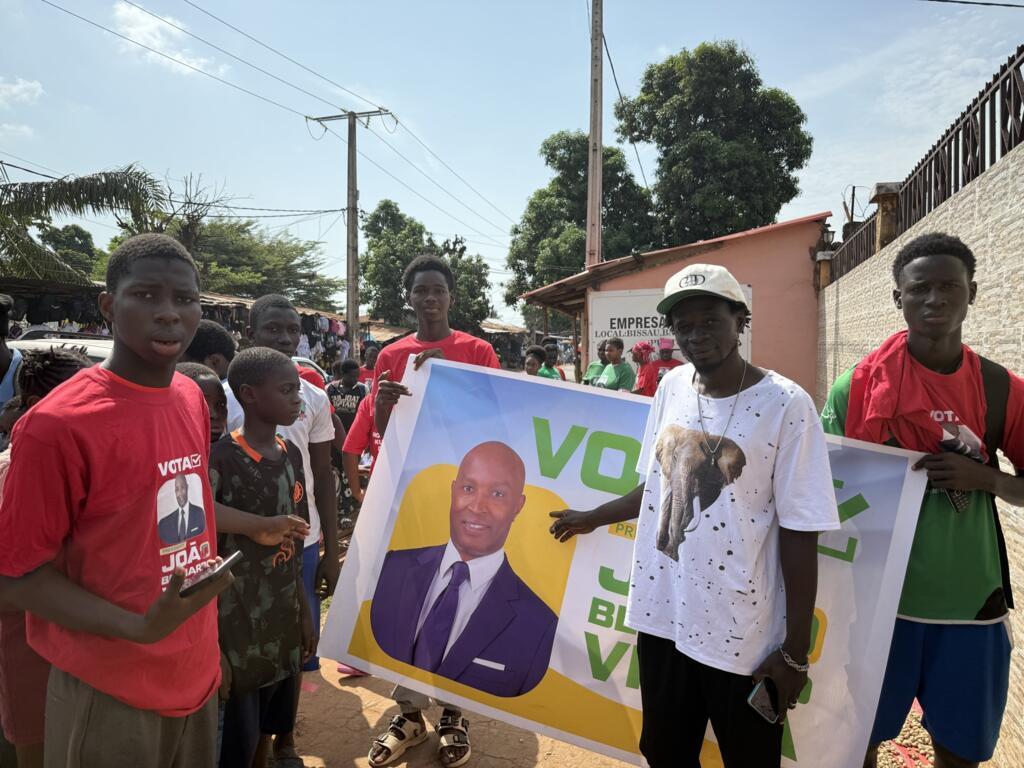
Guinea Bissau's incumbent President Umaro Sissoco Embaló, in power since 2020, is seeking a second term, but chronic instability and a wealth of opponents could stand in his way.
He calls himself "General do Povo," meaning "General of the People", and has expressed confidence in his chances since the courts barred the candidacy of his main opponent, Domingos Simões Pereira, leader of the historic PAIGC party. But is Umaro Sissoco Embaló's win a sure thing?
The 53-year-old former army general is seeking a second term in the 23 November legislative and presidential elections, and has been touring the country canvassing for weeks.
Should he win, he will become the first incumbent president to be re-elected in three decades in the small West African nation of 2.2 million inhabitants, marked by instability.
Since gaining its independence from Portugal in 1974, Guinea-Bissau has seen at least 10 coups or attempted coups, with a plot for the most recent foiled three weeks ago, according to the country’s armed forces. Embaló's government has reported multiple attempts to oust him since he took office in 2020.
He also faces 11 challengers, including Jose Mario Vaz, 67, who served as president from 2014 to 2020, becoming the first to complete a full term since Guinea-Bissau attained independence.
Others in the running include Baciro Dja, a 52-year-old former defence minister, who served two brief stints as prime minister when Vaz was president in 2015 and again in 2016; Joao Bernardo Vieira, 48, the nephew and namesake of Guinea-Bissau's longest-serving president, who ruled mostly uninterrupted from 1980 to 1999 and again from 2005 to 2009, and Fernando Dias, from the PRS party but running for the PAIGC party, whose candidate has been barred.
Peace without prosperity: Angola marks 50 years of independence

Obstacles for the opposition
The PAIGC party, which fought for the country's independence, was prevented from fielding its preferred candidate, Pereira, when the Supreme Court rejected his coalition’s application, saying they submitted the documents too late.
The PAIGC is still participating in the electoral race, since it is supporting another candidate – Dias, from the PRS party, who has a fairly strong base.
"So, between the PRS base and the PAIGC base, there will be a clear opponent to Sissoco. But it's certain that Sissoco has taken many steps to strengthen his chances of being re-elected," Vincent Foucher, a researcher at the French National Centre for Scientific Research (CNRS) told RFI.
Trump hosts five African leaders in landmark summit on trade, investment and security
Guinea Bissau last went to the polls in 2023 when Embaló dissolved the opposition-controlled parliament, after armed clashes which he described as an attempted coup. Critics saw this move as an effort to extend his mandate.
Opponents also insist he did not actually win the 2019 election and, more recently, that he has overstayed his constitutional mandate by several months.
Independent media coverage in the country is restricted, with Portuguese public service broadcasters RTP Africa and RDP Africa, as well as the news agency LUSA, expelled in August.
Transfer of support
"The PAIGC won the last legislative elections in 2023, and it retains a historical advantage, fundamental popularity and a presence throughout the country, in all the electoral districts that make up the very diverse nation of Guinea-Bissau," said Foucher.
“I am a PAIGC activist and I will vote for the ideal candidate, the one who will bring peace, tranquility and success to Guinea-Bissau," voter Judite Gome told RFI's reporter in Bissau.
"We women want to be able to sleep peacefully, without worrying that our sons will be kidnapped or tortured. That is what we want for Guinea-Bissau," she added.
How Portugal's Carnation Revolution changed the fate of its colonies in Africa
The question now, according to Foucher is whether that PAIGC support can be transferred to Dias. The barred PAIGC leader Pereira is calling on the party's supporters to vote for Dias, but the latter is a young man who doesn't have a particularly strong presence in the country's public sphere.
"This is Fernando Dias's first time running for office," said Foucher.
"Furthermore, the opposition will clearly have suspicions about the integrity of the election. There has been much controversy surrounding Sissoco Embaló's restructuring of the Supreme Court, the Supremo Tribunal de Justiça, and the National Electoral Commission, which he saw as having his own agenda. At least, that's the opposition's perception. And this could also undermine the legitimacy of the election in the eyes of the opposition."







